|
LISTEN TO THIS THE AFRICANA VOICE ARTICLE NOW
Getting your Trinity Audio player ready...
|
Deputy President Rigathi Gachagua’s political future has been thrown into turmoil as a much-anticipated impeachment motion gathered momentum in the National Assembly. Thursday, September 26, Kimilili MP Didmus Barasa announced that he had collected 242 signatures from lawmakers in support of the motion, surpassing the 117 required to table it before the House.
The motion seeks to impeach Gachagua on grounds of gross misconduct, violations of the Constitution, and allegations of incitement. It has triggered widespread debate and internal wrangling within the ruling United Democratic Alliance (UDA) and the larger Kenya Kwanza coalition. “I will prosecute the impeachment motion on the floor of the House,” Barasa declared, adding that he had submitted the signatures to the Speaker’s office.
If the motion proceeds, it will need 233 votes to pass in the National Assembly before it moves to the Senate for further consideration. The Speaker of the National Assembly is expected to notify the Senate Speaker, who will convene a special committee to investigate the allegations against the Deputy President. This process could determine whether Gachagua remains in office or faces removal, marking a critical juncture in Kenya’s political history.
Earlier this week, Gachagua faced further political isolation after Tana River Senator Danson Mungatana tabled a censure motion in the Senate on Monday, September 23.
The motion, which seeks to express disapproval of the Deputy President’s conduct, comes at a time when political tensions within the ruling United Democratic Alliance (UDA) are on the rise.
The censure motion, submitted to Senate Speaker Amason Kingi, marks a critical moment in Gachagua’s tenure. Unlike an impeachment motion, which aims to remove a public official from office, the censure motion focuses on questioning the Deputy President’s actions and statements, accusing him of straying beyond his constitutional role.
Mungatana’s motion specifically highlights a series of contentious remarks made by Gachagua since taking office, alleging that the Deputy President has fostered divisions within the country. Among the concerns are statements about employment opportunities in the public sector, resource allocation to county governments, and purported calls for defiance of lawful county directives. “This country cannot afford to have one individual disregard their responsibilities and, in the process, make matters worse,” Mungatana stated, underscoring the seriousness of his claims.
Mounting Political Pressure
At the core of the motion is the accusation that Gachagua’s rhetoric has marginalized certain communities, exacerbating ethnic divisions—a move Mungatana argues is detrimental to Kenya’s national unity. “His public utterances have alienated sections of the population, heightened ethnic tensions, and lowered the dignity of the office of the Deputy President,” he added.
This move has not gone unnoticed by other political figures. Deputy Speaker Gladys Boss Shollei has pledged to oversee the censure process, fueling speculation that the political establishment is increasingly dissatisfied with Gachagua’s leadership. “I will personally ensure the censure motion proceeds,” Shollei affirmed, signaling a growing alignment against the Deputy President within political circles.
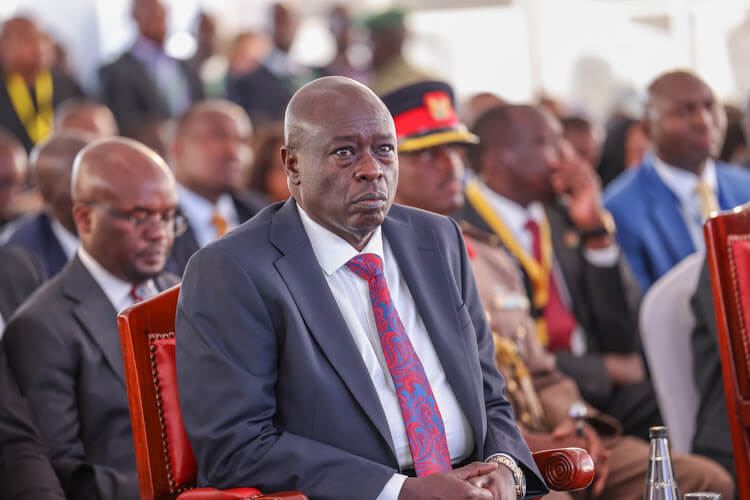
The political fallout extends beyond the Senate chamber. Francis Atwoli, the influential Secretary-General of the Central Organization of Trade Unions (COTU), has added his voice to the chorus of criticism, suggesting that Gachagua’s behavior warrants legal action. “If this were the era of KANU, we wouldn’t even be discussing this—he’d already be held accountable,” Atwoli said, referring to the former ruling party known for its strong-handed tactics in quelling dissent.
Gachagua’s recent statements, in which he hinted that his political woes may be the result of machinations within his own party, have added fuel to the fire. In a recent interview with Citizen TV, Gachagua implied that members of Parliament are being coerced into supporting an impeachment motion against him. “There are secret meetings happening, but the information eventually reaches us. We know when they’re plotting,” Gachagua remarked, in a thinly veiled critique of his own political allies.
At the heart of this political tug-of-war is a broader power struggle within the UDA and Kenya Kwanza, the ruling coalition. Gachagua has publicly called on President William Ruto to intervene and restore order within the party, urging him to prevent further internal discord. “President Ruto needs to assert his authority and call for calm. The Members of Parliament must stop attacking each other, and the unnecessary meetings plotting against me must end,” he declared during the interview.
Accusations of Betrayal and Political Machinations
Gachagua’s appeal to the President came just days before he and his allies launched a public offensive during a church service in Thika, Kiambu County. In an impassioned speech, the Deputy President warned President Ruto against reviving what he termed the “politics of betrayal,” a reference to historical political betrayals that have sparked instability in Kenya. “Ruto must not forget the support he received from Mt. Kenya during his struggles. Betrayal is deeply resented in this region, and the consequences could be dire,” Gachagua warned.
United Democratic Alliance ex Secretary General Cleophas Malala echoed these sentiments, urging President Ruto to dismiss the alleged plans to impeach Gachagua. Malala argued that the impeachment effort, reportedly being spearheaded by opposition legislators allied with the Orange Democratic Movement (ODM), is a prelude to a larger political attack on Ruto himself. “If they succeed in removing Gachagua, they will turn their sights on Ruto next,” Malala cautioned.
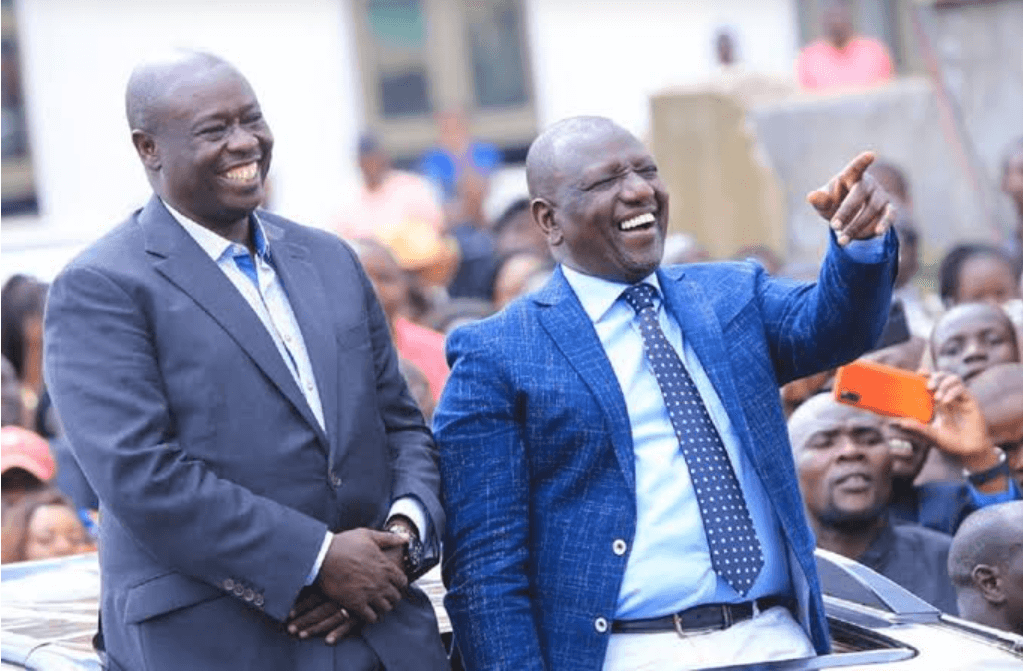
At the same time, Githunguri MP Gathoni Wamuchomba has hinted that a formal impeachment motion may be tabled in Parliament soon. She implored Ruto to remember the significant electoral support he received from Kiambu County and to ensure Gachagua remains in his post. “The people of Kiambu gave you over 600,000 votes, Mr. President. Do not forget that, and allow Gachagua to do his job,” Wamuchomba urged.
At a public rally in Githurai, Gachagua’s political allies, including former Laikipia Woman Representative Cate Waruguru, ratcheted up their criticism of President Ruto. Waruguru, addressing a crowd, predicted that Ruto’s political fortunes were dimming. “We were conned, and many now believe that Ruto will be a one-term president,” she declared to an enthusiastic audience.
Gachagua’s Fiery Statement
As the political pressure reached a fever pitch, Gachagua took to social media on Thursday, September 26, to issue a fiery statement. In a series of posts, he warned against the use of the criminal justice system for political purposes, accusing some members of the government of attempting to undermine his leadership.
“The use of the criminal justice system to manage politics is an outdated political strategy that was used in the past,” Gachagua wrote. He expressed frustration over what he described as ongoing harassment of his office staff and Members of Parliament aligned with him. “Harassment of my office staff and Members of Parliament perceived to be close to me has been going on for the last two months,” he added.
Gachagua also claimed that there was a scheme in place to file false charges against his staff and certain MPs, specifically naming Embakasi North MP James Gakuya and Embakasi Central MP Benjamin Gathiru Mejja Donk. According to Gachagua, the aim of these charges was to associate them with violent demonstrations that took place in June, in an effort to damage his reputation and create grounds for his impeachment.
“This evil scheme is to associate them with violent demonstrations… in a futile attempt to soil my name and hopefully create grounds for the mooted impeachment proceedings against me,” Gachagua asserted. He concluded his statement by urging law enforcement agencies to remain professional and to steer clear of political battles. “Kenyans are very intelligent people. They know what factors made the people of Kenya take to the streets. Kenyans also know what the real problems in Kenya are. They surely know Rigathi Gachagua is not among them,” he stated.
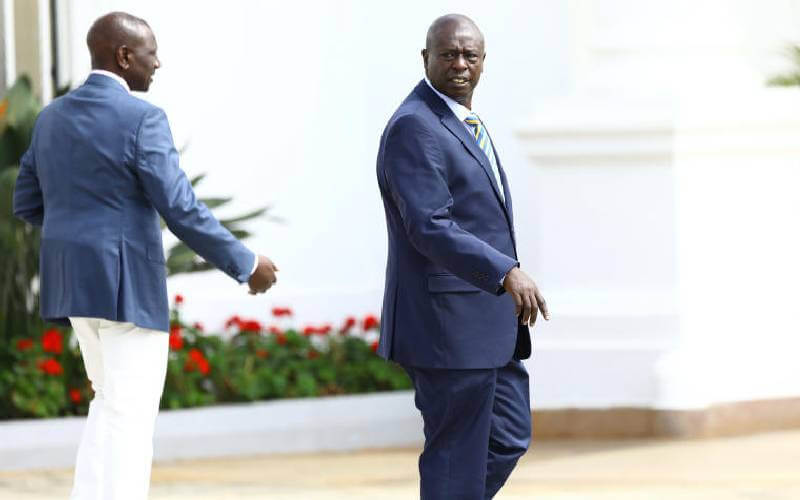
As Gachagua continues to face mounting political pressure, the response from Kenya’s opposition leaders has been one of bemusement. ODM Chairperson Gladys Wanga, for instance, dismissed the Deputy President’s claims of betrayal, advising him to focus on his responsibilities rather than political conspiracies. “If you’re the Deputy President, you should be working, not complaining. Your role in the government is clear,” Wanga said.
Meanwhile, National Assembly Majority Leader Kimani Ichung’wah dismissed the impeachment narrative as a tactic designed to garner sympathy from the Mt. Kenya electorate. “Gachagua is attempting to create fear by suggesting that an impeachment motion will cause instability, but it’s a ploy to turn the region against its own leaders,” Ichung’wah said.
Gachagua’s Rise & Genesis of His Political Challenges
Gachagua’s rise to prominence began in the civil service, where he worked as a District Officer after graduating from the University of Nairobi with a degree in Political Science and Literature. His administrative skills and deep understanding of local governance quickly earned him the reputation of being a no-nonsense leader. During the Moi regime in the 1990s, Gachagua served in various capacities, including in the Office of the President, where he gained significant experience in national politics and administration. His time working closely with the late Nicholas Biwott, a powerful and influential figure in the Moi government, allowed him to hone his political acumen.
In 2017, Gachagua entered elective politics and successfully ran for the Mathira Member of Parliament seat. His time in Parliament saw him position himself as a key ally of President William Ruto, who was then serving as Deputy President under President Uhuru Kenyatta. Gachagua’s vocal support for Ruto, even as political differences emerged between Kenyatta and Ruto, positioned him as a loyalist within Ruto’s camp, especially when the Jubilee Party began experiencing internal tensions. He became one of the most outspoken defenders of Ruto during the 2022 general election campaign, where he was chosen as Ruto’s running mate, largely due to his strong backing in the Mt. Kenya region.
During the 2022 general election, Gachagua played a critical role in galvanizing support from the Mt. Kenya region for Ruto’s United Democratic Alliance. At the time, Mt. Kenya, Kenya’s most vote-rich region, was seen as the battleground that would decide the outcome of the presidential race. With Ruto losing support from his former boss, President Kenyatta, who backed Raila Odinga’s candidacy, Gachagua became instrumental in ensuring that the region remained loyal to Ruto.
His fierce campaigning, often couched in ethnic appeals and promises to protect the interests of the Kikuyu community, earned him widespread support. Gachagua presented himself as the guardian of Mt. Kenya’s economic and political interests, positioning Ruto as a leader who understood the needs of the region’s small-scale farmers and businesspeople. This helped Ruto secure a significant number of votes from the region, contributing to his victory over Raila Odinga in the tightly contested election.
However, almost immediately after assuming office in September 2022, Gachagua began to encounter challenges. One of the first signs of trouble came in the form of public backlash against some of his controversial remarks. As a former District Officer with a strong, authoritative leadership style, Gachagua’s direct and often blunt communication style did not always sit well with his critics. His statements, which were sometimes perceived as divisive or overly focused on ethnic concerns, began to spark debates about his leadership approach.
For instance, shortly after taking office, Gachagua made a statement about how public sector jobs would be distributed under his leadership, suggesting that appointments should favor those who had backed Ruto’s candidacy. This drew criticism from various quarters, with accusations that Gachagua was playing into tribal politics, a sensitive issue in the country’s multi-ethnic society. His remarks on resource allocation and county governance further exacerbated concerns that he was prioritizing the Mt Kenya region over others.
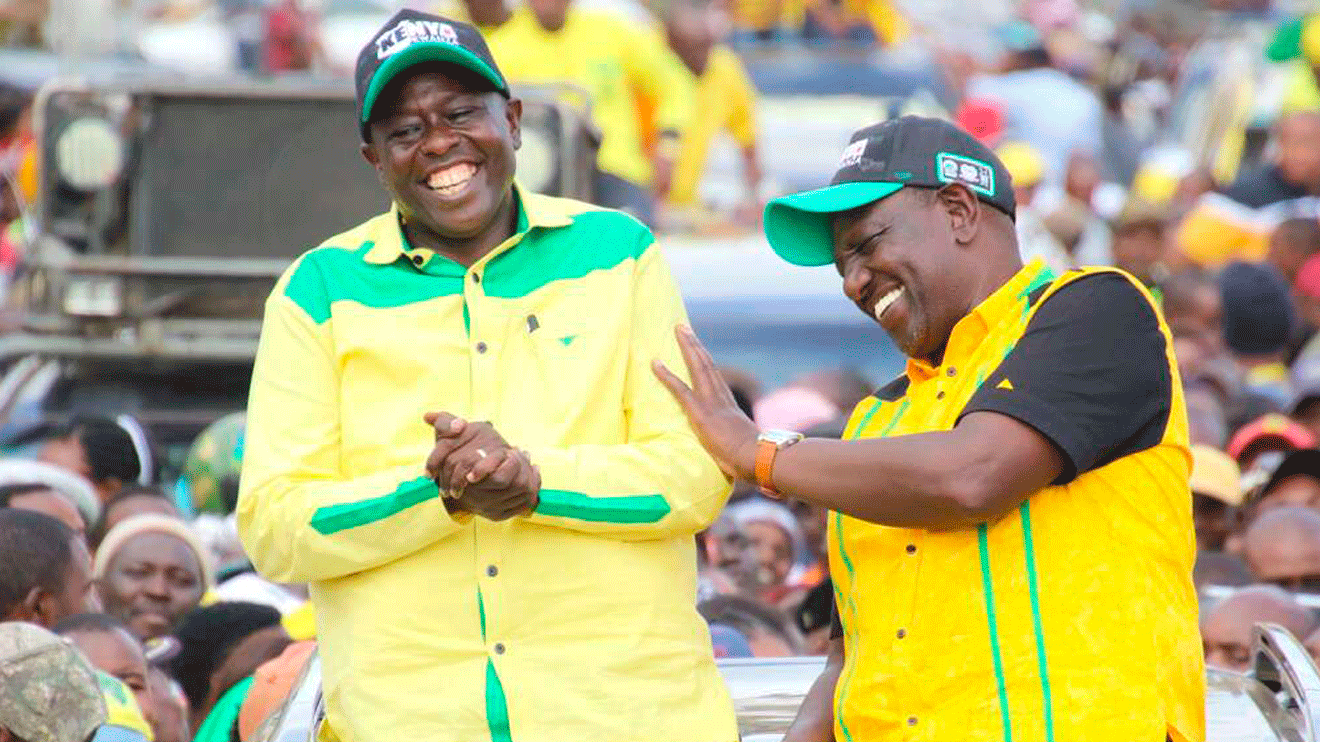
The Deputy President’s approach also seemed to ruffle feathers within the Kenya Kwanza coalition. As President Ruto sought to build a cohesive, inclusive government, Gachagua’s sometimes abrasive style created tensions with other senior officials. Political observers noted early signs of a rift between Gachagua and key figures within the administration, although these differences were largely kept out of the public eye in the early days of the government.
By mid-2023, the cracks in Gachagua’s relationship with other political leaders, both within the ruling coalition and in the opposition, became more visible. His continued focus on the Mt. Kenya region led to accusations of regional favoritism, with critics alleging that his actions were creating divisions within the country. Several politicians, including those from within the Kenya Kwanza alliance, began publicly criticizing Gachagua’s leadership style, accusing him of straying beyond his constitutional role as Deputy President.
One of the defining moments of Gachagua’s political challenges came when he was accused of undermining Kenya’s devolution process, a key pillar of the country’s governance structure. His remarks on resource allocation to counties, where he suggested that more funds should be directed to regions that supported the Kenya Kwanza government, sparked widespread outrage. Critics argued that such statements threatened the national unity and spirit of devolution, which is designed to ensure equal distribution of resources to all counties, regardless of political affiliation.
Despite their strong political alliance during the 2022 election, the relationship between Gachagua and President Ruto became increasingly strained as the Deputy President continued to make headlines for all the wrong reasons. The friction between the two leaders appeared to intensify as Ruto sought to project a more unifying image, both domestically and internationally, while Gachagua seemed to double down on his regional rhetoric and abrasive leadership style.
By mid-2024, whispers of discontent within the UDA began to surface, with reports of secret meetings among MPs allegedly plotting Gachagua’s impeachment. These meetings, reportedly spearheaded by both ruling party figures and opposition leaders, indicated a growing dissatisfaction with the Deputy President’s conduct.
The upcoming parliamentary and Senate debates on his impeachment will be a defining moment not just for Gachagua but also for the stability of the Kenya Kwanza government. Whether he can survive this political storm or becomes a casualty of internal party dynamics remains to be seen.
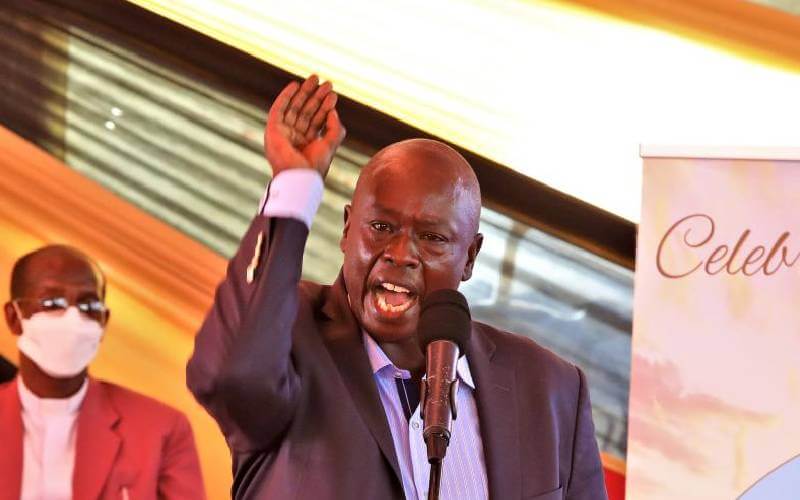



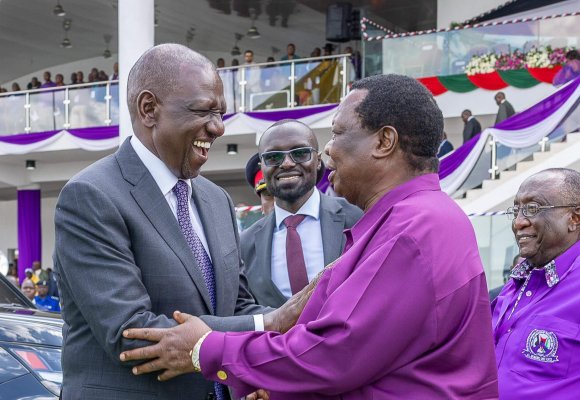
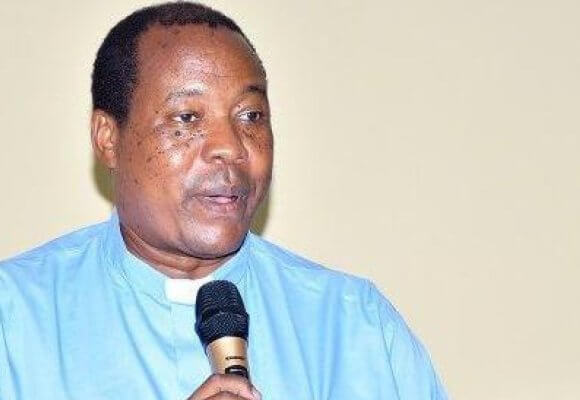
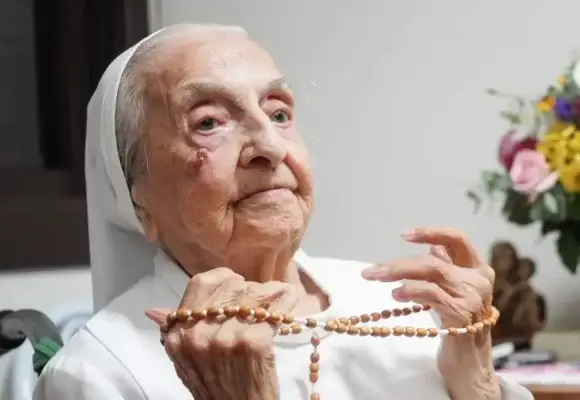
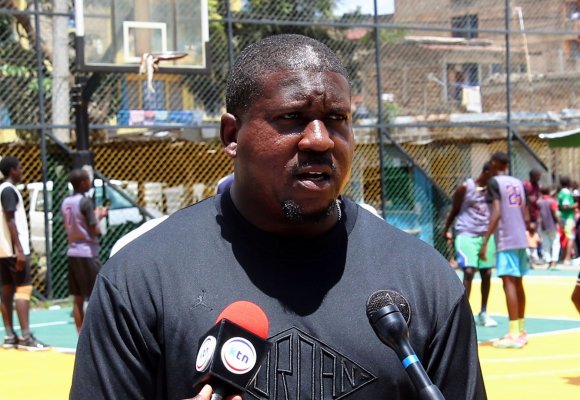



LEAVE A COMMENT
You must be logged in to post a comment.